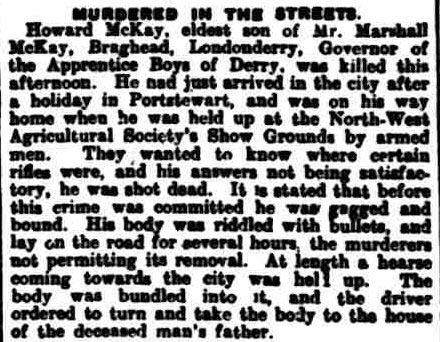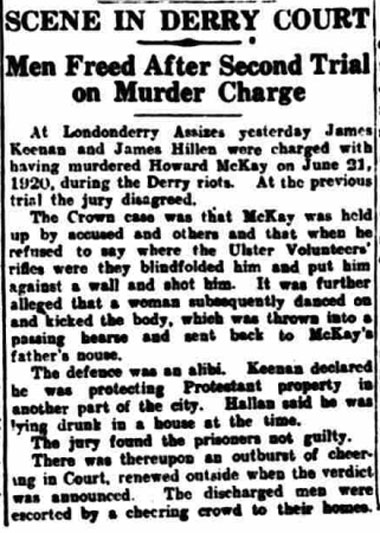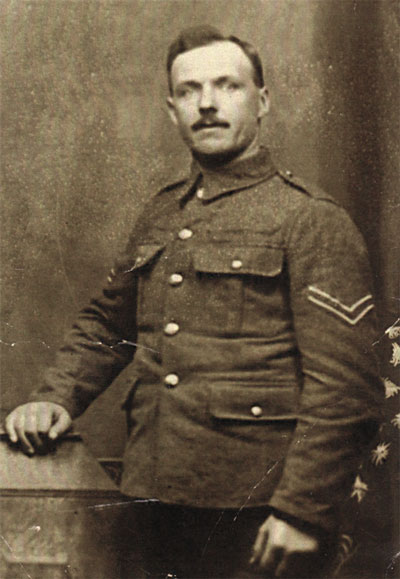Corporal Howard Henry McKay
Howard Henry McKay was born on 14 April 1886 at Braehead, Londonderry, the first of six children of farmer Marshall McKay and his wife Catherine Wray McKay (née Henry). At the time of the 1911 Census he was living at Termonbacca, Londonderry, with his parents and three of his four surviving siblings, and working on the family farm.
McKay enlisted in the 6th (Inniskilling) Dragoons Service Squadron on 1 November 1914 (No. UD/92 – later Corps of Dragoons number 21237). The squadron, which had been formed as divisional cavalry for the 36th (Ulster) Division, embarked for France on 6 October 1915. A party of at least thirty men of the squadron, including McKay, had embarked three days earlier, attached to 36th Division Headquarters – many if not all of them serving as batmen to senior officers.
In June 1916 the Inniskilling squadron joined C and F Squadrons of the North Irish Horse to form the 2nd North Irish Horse Regiment, serving as corps cavalry to X Corps until August 1917 when it was disbanded and its men were transferred to the infantry.
McKay was not with the 2nd (NIH) Regiment at the time though. It is probable that he had remained attached to divisional headquarters, or returned to the UK due to sickness or injury and then been posted to the squadron's reserve camp at Enniskillen.
On 25 February 1919 he was demobilised and transferred to Class Z, Army Reserve.

On 21 June 1920 during the Londonderry riots, while returning home along Lone Moor Road, McKay was shot dead by men demanding to know the whereabouts of hidden UVF guns in the city. (His father was Governor of the Apprentice Boys of Derry.) He was buried in Derry City Cemetery. Two men were later tried for the murder, but were acquitted.
The incident and subsequent trial received wide coverage. On 22 June 1920 in the House of Commons Lieutenant-Colonel Wilfrid Ashley spoke of:
... a most foul crime which I could not believe any inhabitants of the United Kingdom could be guilty of. It is more worthy of darkest Africa or some savage Asiatic potentate. Let me read the paragraph: Most tragic of all yesterday's (Monday's) events was the shooting of a young man named Howard McKay, son of the governor of apprentice boys of Derry. Mr. McKay, who was about 25 years of age, and served in France with the North Irish Horse during the War, had been on holiday. He was not in uniform. He was not a resident. He only arrived in the city yesterday (Sunday) afternoon. He was on his way to his father's residence outside the city, but on the outskirts of the town he was seized by armed Sinn Feiners, bound with ropes, and then shot dead. The body lay on the roadside for several hours.

Weekly Irish Times, 26 June 1920

The Freeman's Journal, 8 November 1923

The Freeman's Journal, 18 March 1924

Images 1 and 2 kindly provided by Trevor and Howard McKay. Cemetery image sourced from the Find a Grave website.
This page last updated 25 February 2023.

